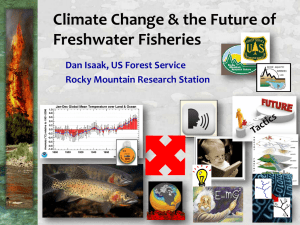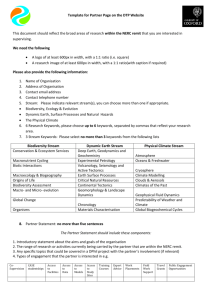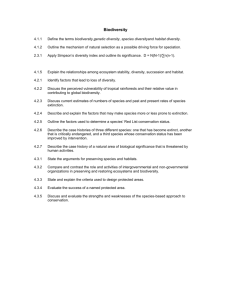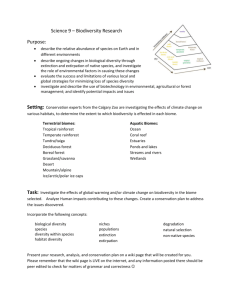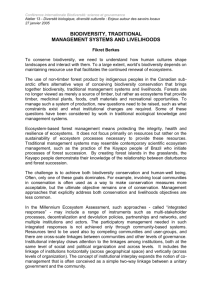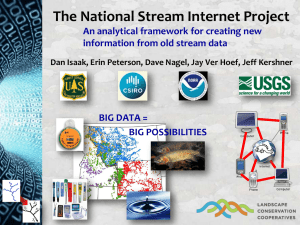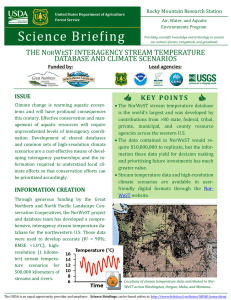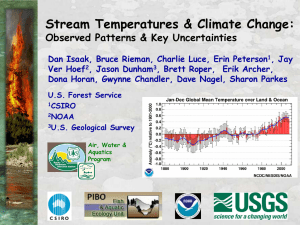Please join us for our second seminar Seminar Series
advertisement
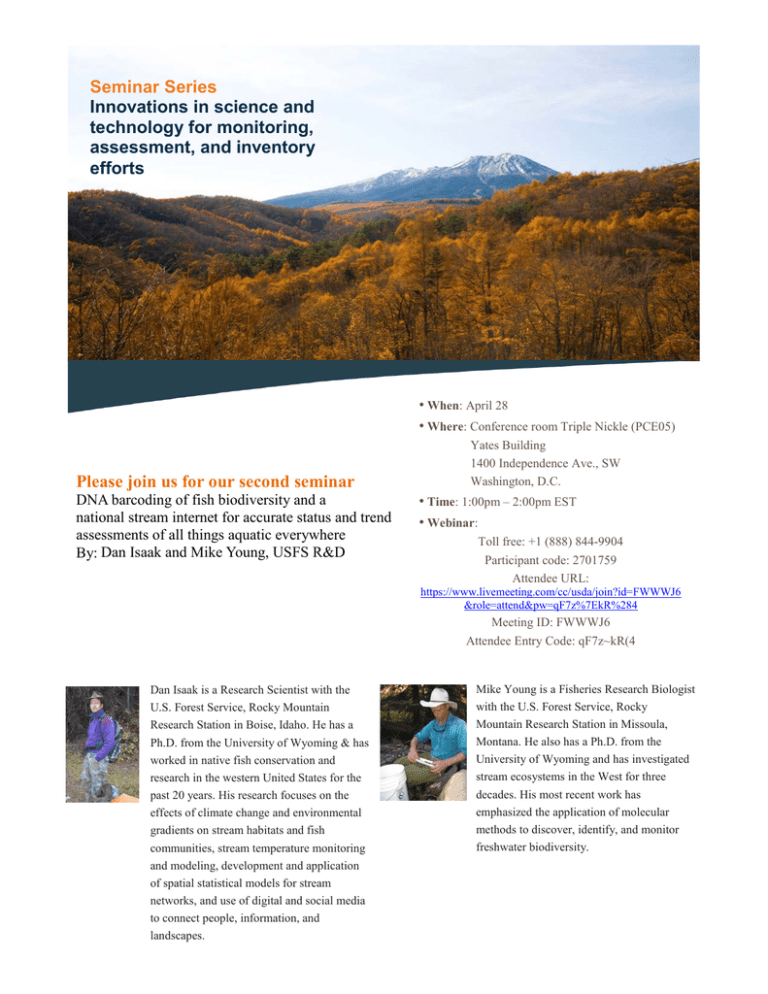
Seminar Series Innovations in science and technology for monitoring, assessment, and inventory efforts • When: April 28 • Where: Conference room Triple Nickle (PCE05) Please join us for our second seminar DNA barcoding of fish biodiversity and a national stream internet for accurate status and trend assessments of all things aquatic everywhere By: Dan Isaak and Mike Young, USFS R&D Yates Building 1400 Independence Ave., SW Washington, D.C. • Time: 1:00pm – 2:00pm EST • Webinar: Toll free: +1 (888) 844-9904 Participant code: 2701759 Attendee URL: https://www.livemeeting.com/cc/usda/join?id=FWWWJ6 &role=attend&pw=qF7z%7EkR%284 Meeting ID: FWWWJ6 Attendee Entry Code: qF7z~kR(4 Dan Isaak is a Research Scientist with the U.S. Forest Service, Rocky Mountain Research Station in Boise, Idaho. He has a Ph.D. from the University of Wyoming & has worked in native fish conservation and research in the western United States for the past 20 years. His research focuses on the effects of climate change and environmental gradients on stream habitats and fish communities, stream temperature monitoring and modeling, development and application of spatial statistical models for stream networks, and use of digital and social media to connect people, information, and landscapes. Mike Young is a Fisheries Research Biologist with the U.S. Forest Service, Rocky Mountain Research Station in Missoula, Montana. He also has a Ph.D. from the University of Wyoming and has investigated stream ecosystems in the West for three decades. His most recent work has emphasized the application of molecular methods to discover, identify, and monitor freshwater biodiversity. Abstract: Accurate, high resolution information on the status and trends of water quality and aquatic biotas throughout all rivers and streams is needed to prioritize limited resources for conservation and management of aquatic resources. In this presentation, we provide an overview of new, cost effective tools for aquatic monitoring and assessment – a national stream internet & DNA barcoding of fish biodiversity. The National Stream Internet provides a nationally consistent analytical infrastructure that could be used to mine information from the massive amounts of water quality measurements, biological surveys, and habitat condition data that have already been collected by state, federal, tribal, and private organizations. The recently piloted DNA barcoding approach to broad-scale biodiversity assessments provides managers with a new tool for benchmarking and identifying ecological change at unprecedented spatial resolution. This approach permits better assessments of biodiversity because it can identify conservation units within species as well as discover new species. Coupling genetic evaluations with robust sampling designs can shed light on the abundance and distribution of organisms at all taxonomic levels and allow cost-effective monitoring. These tools provide managers with better information about stream and river resources, enabling more efficient and effective use of conservation resources. Contact: Katherine Smith U.S. Forest Service
